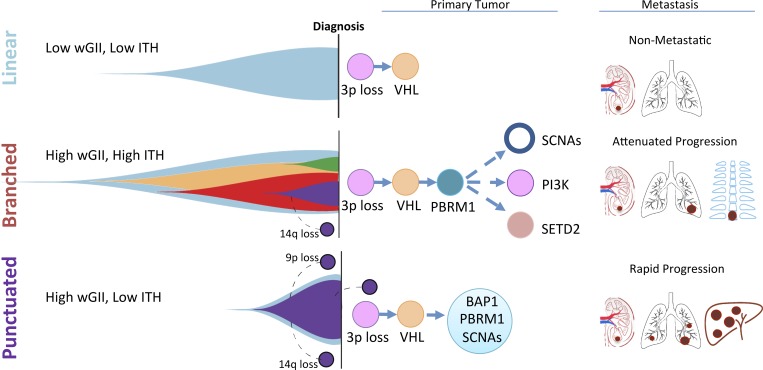Multiregion sequencing analyses revealed distinct evolutionary subtypes that are associated with distinct metastatic patterns. Chromosome 3p loss and VHL deficiency are nearly universal early events. Primary tumors with limited ITH and a low fraction of their genome affected by SCNAs have an overall low metastatic potential and follow a linear pattern of evolution. Primary tumors with high ITH and high genomic instability follow an attenuated progression, characterized by highly branched trees and solitary metastases. These tumors usually harbor early PBRM1 mutation followed by subclonal SCNAs, mutational activation of the PI3K–AKT–mTOR pathway, or SETD2 mutation. Both chromosome 9p loss and 14q loss are late events in tumor evolution. In primary tumors characterized by low ITH and high genomic instability, metastatic competence is acquired at the early stage of tumor evolution, which then drives rapid tumor dissemination, leading to a poor outcome and early death from disease. In this aggressive subtype, chromosome 9p and 14q loss occurs early during tumor development. VHL, von Hippel-Lindau; BAP1, BRCA1-associated protein 1; PBRM1, protein polybromo-1; PI3K, phosphatidylinositol-4,5-bisphosphate 3-kinase; SETD2, SET domain containing 2; wGII, weighted genome integrity index score, measuring the extent of genome instability.

An official website of the United States government
Here's how you know
Official websites use .gov
A
.gov website belongs to an official
government organization in the United States.
Secure .gov websites use HTTPS
A lock (
) or https:// means you've safely
connected to the .gov website. Share sensitive
information only on official, secure websites.
